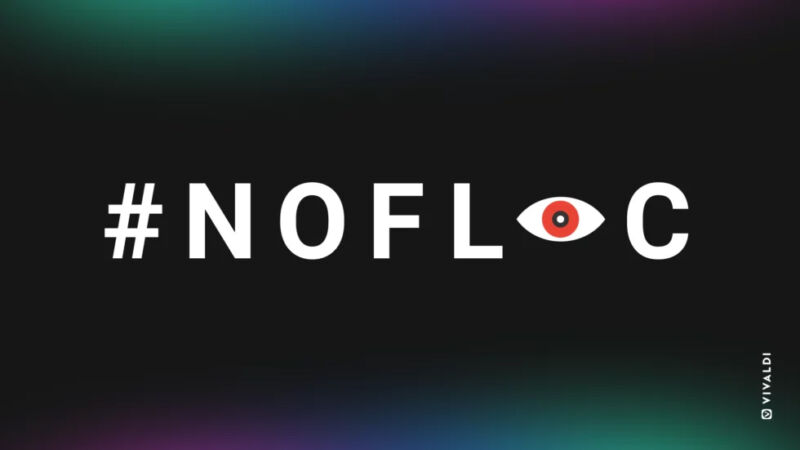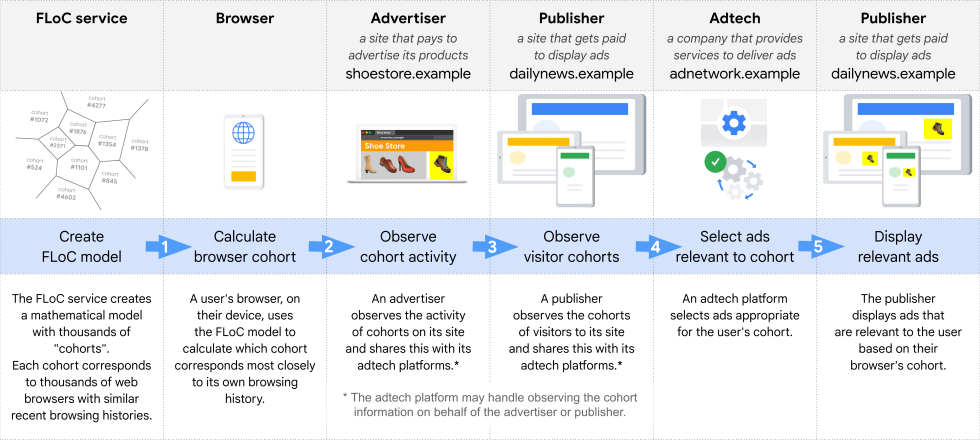Google delays FLoC rollout until 2023

Enlarge / Vivaldi's graphic on FLoC. (credit: Vivaldi)
Google's plan to upend web advertising and user tracking by dropping third-party cookie support in Chrome has been delayed. Most browsers block third-party tracking cookies now, but Google-the world's largest advertising company-wasn't going to follow suit without protecting its business model first. The company's replacement plan for cookies is a controversial system called "FLoC," but after many big Internet players came out against the idea (and the EU launched an antitrust investigation into the plan) Google now says that "it's become clear that more time is needed across the ecosystem to get this right." The new timeline pushes back the death of third-party cookies by about a year and a half.
Back in January 2020, Google announced a plan to drop support for third-party cookies in Chrome "within two years." The Chrome "Privacy Sandbox" would block the third-party cookies typically used for ad targeting, but given Google's multibillion-dollar ad business, "not tracking users at all" is not an option. A replacement tracking system called "FLoC," or "Federated Learning of Cohorts," was the primary alternative floated by the Chrome team. Instead of letting individual companies hide a third-party cookie on your computer that tracks what websites you visit for ad interest tracking, FLoC would let Chrome build an ad profile locally on your computer and ship that profile to advertisers whenever they ask. Google says this plan is better than third-party cookies because it will take individual identification out of the ad-tracking process by combining people into groups, though many opponents of the idea have disputed this idea.

Google's infographic on FLoC. (credit: Google)
Everyone who isn't an advertising company seems to have come out against FLoC. The EFF, Brave, Vivaldi, and DuckDuckGo have all put out strong statements against the idea. Meanwhile, other browser vendors-like Apple, Opera, Mozilla, and Microsoft-have floated more tepid "no plans to implement" statements. Amazon is already blocking FLoC on Amazon.com, Wholefoods.com, and Zappos.
Read 2 remaining paragraphs | Comments